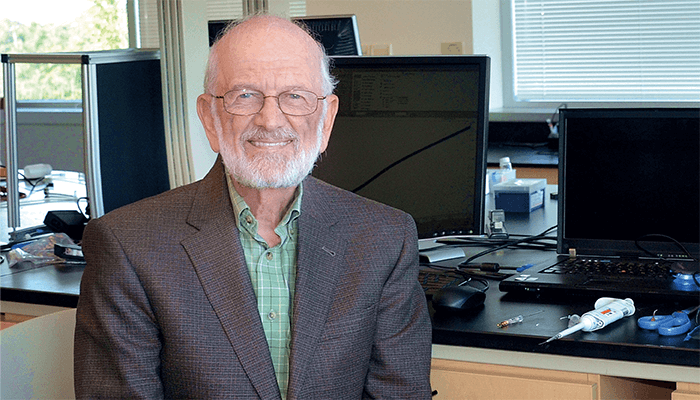Graham Cooks recently made one of the most important discoveries of his long and illustrious career: water isn’t wet – at least not everywhere. Let’s take a step back – a big step back to the beginning of life itself. Scientists have theorized that life on Earth began in the oceans and involved amino acids delivered to earth by meteorites. But to form peptides, the chemistry requires the loss of a water molecule – which is unlikely in, well, water.
Cooks and his Purdue colleagues generated aqueous droplets containing two amino acids using nano-electrospray ionization, which they monitored with mass spec. On the margins, where the water droplets meet the atmosphere, they found incredibly rapid peptide-forming reactions taking place – a hundred to a million times faster than the same chemicals reacting in bulk solution. The researchers were able to demonstrate, for the first time, that simple amino acids spontaneously form peptides, the building blocks of life, in droplets of water (1,2).

The speed of the reactions means that catalysts are unnecessary and could explain how life arose from abiotic chemistry. Understanding exactly how this process works has been the goal of years of scientific research – and may now inform the search for life on other planets.
“This is a dramatic discovery – essentially the chemistry behind the origin of life,” says Cooks, who also hints at major implications for the chemistry field as a whole. “It could be that all of prebiotic major biochemistry, including making peptides, proteins, and ligand nucleotide RNA is microdroplet chemistry,” he says. “I think that accelerated reactions in microdroplets will become a very significant field of science.”
References
- D Holden et al., PNAS, 119, 42 (2022). DOI: 10.1073/pnas.2212642119
- Purdue University (2022). Available at: https://bit.ly/3AqHWqP
